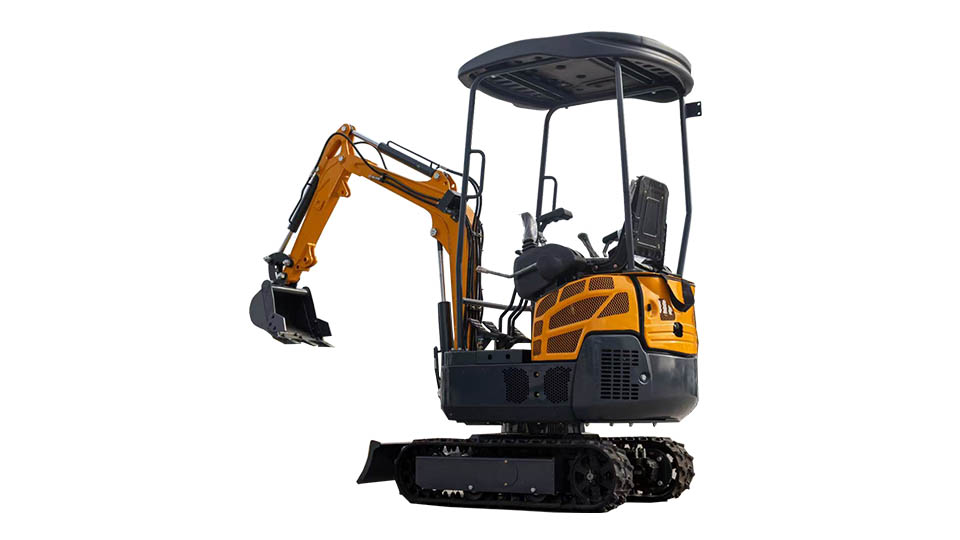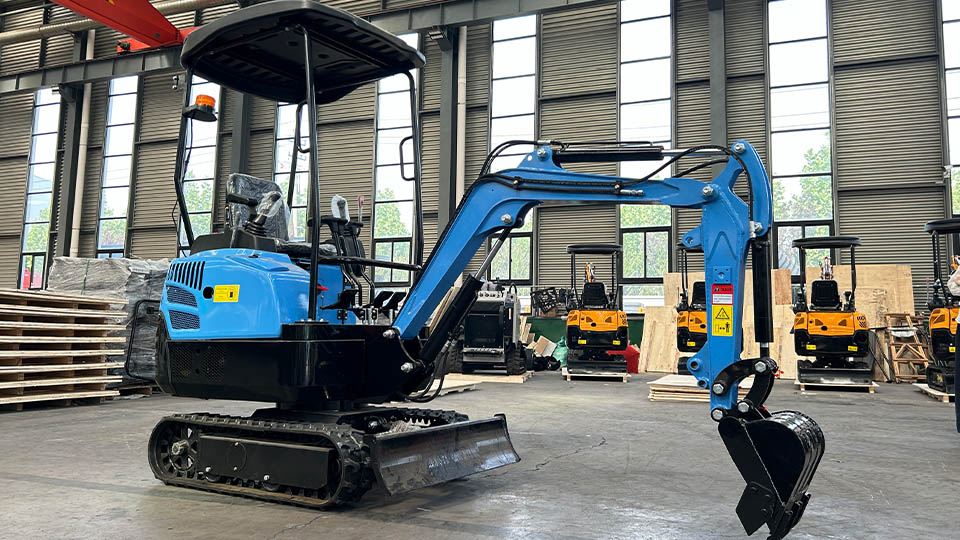1. The Landscape of Second-Hand Sellers
The used excavator market is a diverse ecosystem with three primary types of sellers: certified dealerships, online marketplaces and auctions, and private parties. Each has its own set of advantages and risks, and understanding them is the first step toward a trustworthy transaction.
Certified Dealerships
Purchasing a used excavator from a certified dealership, such as an authorized dealer for a brand like Caterpillar or Komatsu, is often the safest route.
Trust Factor: Dealerships have a brand reputation to uphold. They are typically held to a higher standard of quality and customer service. Many used machines they sell come from their own rental fleets or trade-ins, meaning they have a known maintenance history and were likely serviced by in-house, certified technicians.
What to Expect: A reputable dealer will provide a comprehensive service history, including all repairs, fluid changes, and parts replacements. They often have their used equipment reconditioned and inspected before sale. Some even offer limited warranties or the option to purchase an extended service plan, providing an extra layer of protection.

The Vetting Process:
Check for Certifications: Look for dealerships that are certified by the manufacturer of the equipment they are selling.
Ask for Records: Demand to see detailed service and maintenance records. A trustworthy dealer will have this information readily available.
Read Reviews: Search online for customer reviews and testimonials. Look for trends in feedback, particularly concerning the quality of used equipment and after-sales support.
After-Sales Support: Inquire about their repair and parts services. A good dealer will provide ongoing support, which is a major advantage over a private sale.
Online Marketplaces and Auctions
Websites like MachineryTrader, Rock & Dirt, IronPlanet, and Ritchie Bros. Auctioneers have created a global marketplace for used equipment.
Trust Factor: The trustworthiness of these platforms varies. Marketplaces like MachineryTrader list equipment from both dealers and private sellers, so the level of trust is a function of the individual seller. Auctions have their own systems for building trust, often through detailed inspection reports.
What to Expect: A reputable online marketplace or auction platform will provide detailed specifications, multiple photos, and often, videos of the machine in operation. For auctions, a third-party inspection report is the cornerstone of the platform's reliability.
The Vetting Process:
Scrutinize the Listing: Look for listings with a wealth of information, not just a few photos and a price. Detailed specs, a service history report, and multiple high-resolution images are good signs.
Check the Inspection Report: For auctions, a certified third-party inspection is your best friend. A thorough report will detail everything from undercarriage wear percentages to hydraulic pressure readings. If a machine lacks an inspection report, be wary.
Understand the Terms: Be aware of the "as-is, where-is" nature of many auction sales. This means you buy the machine with all its faults, and the seller has no legal obligation to provide a remedy.
Research the Seller: On marketplaces, you can often research the seller's profile, read their reviews, and see their transaction history. A seller with a long, positive track record is more trustworthy than a new account with a single listing.
Private Sellers
This can be the riskiest, yet most rewarding, avenue for buying a used excavator.
Trust Factor: The level of trust is entirely dependent on the individual seller. It could be a small contractor upgrading their fleet or a farmer selling a machine they no longer need.
What to Expect: Private sales are often a no-frills transaction. The price can be lower because there are no dealership markups, but you are also assuming all the risk.
The Vetting Process:
Personal Connection: If possible, ask for recommendations from people you know in the industry. A trusted referral is invaluable.
Ask for Their "Why": A trustworthy seller will be honest about why they are selling the machine. Is it because they're upgrading? Did the project end? Or is it because it's a "money pit" they can't afford to fix?
Get a History: Ask for maintenance records, invoices for recent repairs, and any other documentation. If the seller has kept a meticulous file, it's a strong indicator they've taken good care of the machine.
Verify Identity and Ownership: Make sure the seller is the legal owner of the equipment and that it doesn't have any outstanding liens.
2. The Technical Inspection: Your Shield Against Deceit
No matter how trustworthy a seller seems, a comprehensive technical inspection is non-negotiable. This is where you verify the seller's claims and uncover any hidden issues.
Engine & Powertrain:
Cold Start: Always ask to start the machine cold. This is when engine issues like hard starts, excessive smoke (blue, white, or black), or strange noises are most apparent.
Fluid Check: Check the color and consistency of the engine oil, hydraulic fluid, and coolant. Milky oil indicates water in the system, and dark, burnt-smelling fluids are a red flag for a neglected machine.

Listen to the Engine: A healthy diesel engine has a rhythmic, consistent sound. Listen for knocks, hisses, or metallic grinding.
Hydraulics:
Under Load: Test the hydraulic system under a load. Dig a trench, lift a heavy object, and swing the boom. The movements should be smooth, consistent, and powerful.
Cylinder and Hose Check: Look for leaks on the hydraulic cylinders, hoses, and pump. A small leak might be a simple fix, but multiple leaks or a large one can indicate a major problem.
Drift Test: Raise the boom and stick to their maximum height and let them sit for a few minutes. If they slowly drift downward, the hydraulic seals are worn and need replacement, a potentially costly repair.
Undercarriage:
The Big Red Flag: The undercarriage on a tracked excavator is one of the most expensive components to replace. It's a key indicator of the machine's overall condition and a tell-tale sign of a trustworthy seller.
Check for Wear: Use a gauge or simply a ruler to measure the wear on the track pads, bushings, and sprockets. Ask for the percentage of life remaining. A trustworthy seller will have this information or will be willing to measure it for you.
Look for Damage: Inspect for cracked links, broken rollers, or a stretched track. Excessive wear or damage in this area suggests the machine was operated in harsh conditions or was poorly maintained.
Structural Integrity:
Weld Marks: Look for any signs of repair, particularly on the boom, stick, and chassis. Fresh paint or extensive welding can be an attempt to cover up a previous structural failure.
Pin & Bushing Play: A crucial check. Use a pry bar to check for excessive play or "slop" in the pins and bushings at the joints of the boom, stick, and bucket. A small amount of play is normal, but too much indicates a machine that has been worked hard and not properly maintained.
3. The Digital Fingerprint: Leveraging Modern Tools
In 2025, technology provides new ways to verify a seller's claims and the machine's history.
VIN and Serial Number Check: Always get the excavator's VIN and serial number. A trustworthy seller will provide these upfront. You can use these numbers to run a lien search to ensure the machine is not a stolen or repossessed asset. You can also contact the manufacturer to inquire about any service bulletins or recalls.
Telematics Data: Many modern excavators are equipped with telematics systems that track operational data. A trustworthy seller will provide you with access to this data, which can verify the hour meter reading and provide a detailed history of the machine’s usage.
Third-Party Inspection Services: For a few hundred dollars, you can hire a professional, independent inspection service. Companies like IronCheck provide detailed reports that are unbiased and comprehensive, giving you peace of mind before you commit to a purchase.
Conclusion
Finding a trustworthy seller for a second-hand excavator is a process of due diligence and risk mitigation. While some sellers are more inherently reliable than others, the ultimate responsibility falls on the buyer to verify every claim. By choosing to work with certified dealerships, leveraging the inspection processes of reputable online platforms, and conducting a thorough technical inspection, a contractor can navigate the used equipment market with confidence. A great deal isn't just a low price; it's a quality machine purchased from a seller who has nothing to hide.
Post time:Sep-25-2020
